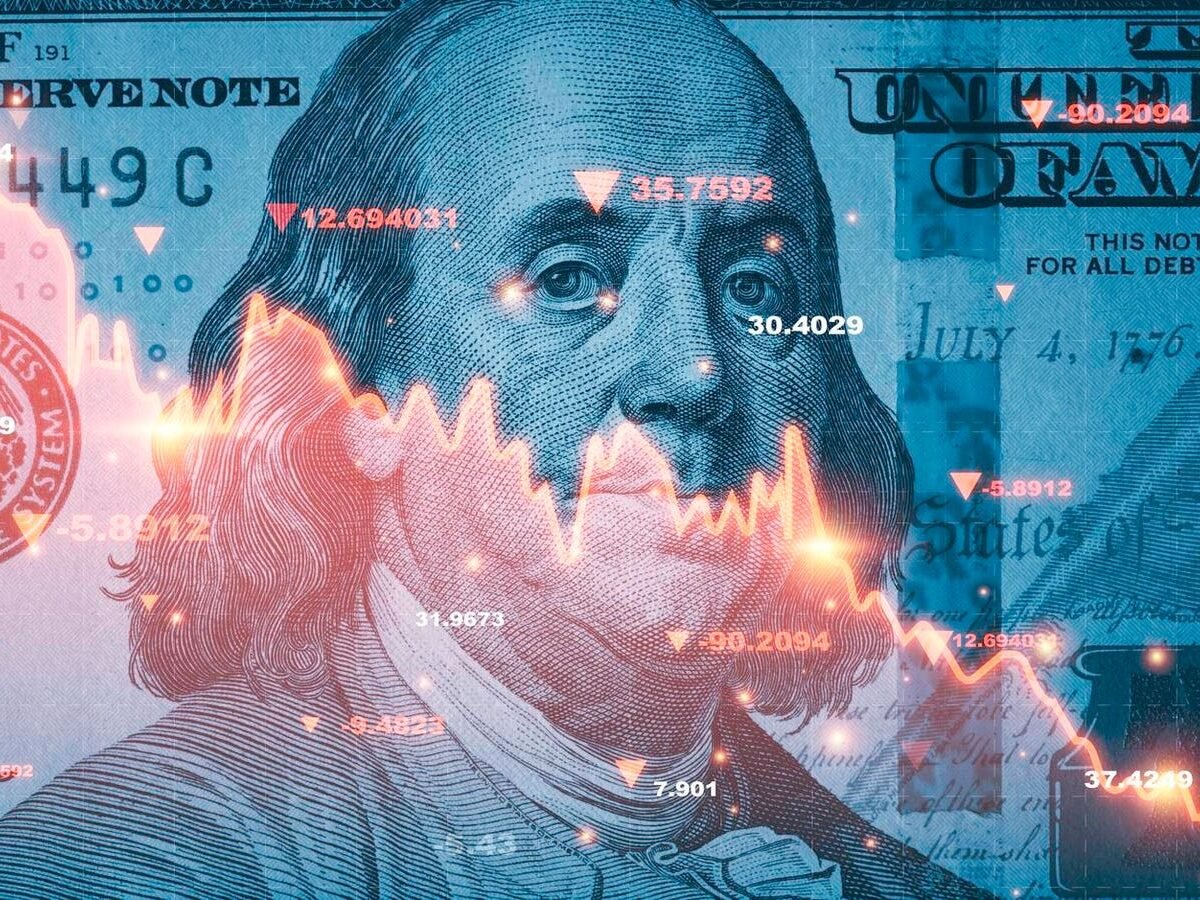Benjamin Franklin face on USD dollar banknote and currency devaluation concept.
Robert Lighthizer, a former U.S. trade negotiator and a potential Treasury Secretary pick for a second Trump administration, is reportedly discussing ways to devalue the dollar in order to reduce the U.S. trade deficit. But unless the exchange rate is clearly out of line with the usual fundamentals, a devaluation is a cut in a nation’s standard of living. It’s a game economists know all too well.
Flash back to the previous administration, when at times it seems as though the raison de vivre for Monsieurs Trump and Lighthizer was trade deficit reduction. Lighthizer wanted to do it back then and apparently still wants to do it. But the economic realities are what they are, both then and now.
Currency devaluation might sound like an appealing way to trim the trade deficit: All else equal, weakening the U.S. dollar would make U.S. exports cheaper, imports more expensive, and potentially reduce the trade deficit. But all other things don’t remain constant in such scenarios, and devaluing your own currency ends up having the opposite intended effect. It makes the economy less competitive and less efficient. Not more competitive. Not more efficient. That’s no recipe for supposed trade superiority.
First, if the United States weakens the dollar, then other countries can easily get around that and weaken their own currency by lowering their interest rates, imposing their own tariffs, or subsidizing their own domestic producers.
Second, another reason it won’t work is the reality of global supply chains. Anything the United States would gain through a devaluation in terms of cheaper exports, it would lose through its relatively pricier imports. Raw materials, intermediate goods, and capital goods comprise over half of U.S. imports. Some go into producing domestic goods and services, others go into manufacturing that is augmented and re-exported. So, either American consumers and businesses would face higher prices here at home, U.S. exports would become less competitive, or a bit of both.
Third, when a country signals it doesn’t want its currency to be strong, or if Lighthizer were to trash the U.S. dollar for reasons related to competitiveness, borrowing costs would go up for every American homeowner and every American business.
Currency devaluation is a race to the bottom that you can’t win. You might be able to get quick hits on the board in the immediate term, but within months, those are inevitably followed by punishing penalties.
A path to a more sustainable reduction in the U.S. trade deficit includes structural reforms both here and abroad. These could include reductions in fiscal spending, more consumer-oriented growth in our major trading partners, increased U.S. household saving rates, and opening up foreign markets to U.S. exports, particularly services exports. Devaluing the currency does none of this and will make Americans worse off, not better off.





